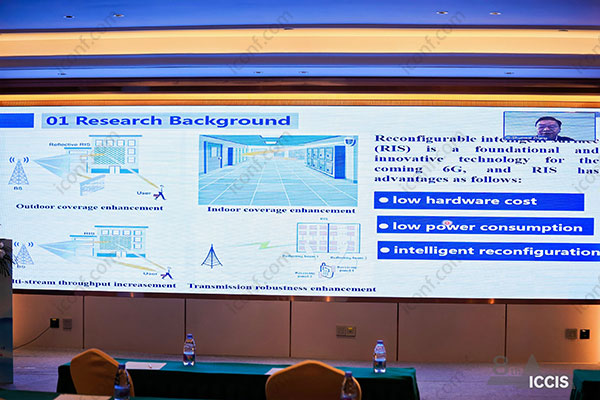

232 views||Release time: Sep 02, 2025
In the world of professional development, conferences are a cornerstone for learning, networking, and growth. However, not all conferences are created equal. The two primary categories—industry conferences and academic conferences—serve vastly different purposes and cater to different audiences. Understanding their unique characteristics is crucial for deciding where to invest your time and resources.
This guide breaks down the fundamental differences between these two types of events and provides a clear-eyed analysis of the value of commercial (industry) conferences to help you make the right choice for your career goals.

At their heart, the distinction is simple: one is driven by commerce, the other by knowledge. An industry conference is a marketplace of ideas and business opportunities, while an academic conference is a forum for peer-reviewed research and theoretical discovery.
Here’s a clear breakdown of their key differences:
| Feature | Industry / Commercial Conference | Academic Conference |
| Primary Goal | Business-Driven: Foster partnerships, generate leads, launch products, and discuss market trends. Focus is on application and commercialization. | Knowledge-Driven: Present original research, receive peer feedback, and advance theoretical understanding within a discipline. |
| Target Audience | Business executives, sales & marketing teams, product managers, engineers, investors, and clients. A diverse, commercially-focused crowd. | Professors, researchers, PhD/Master's students, and scholars. Primarily composed of individuals from academia and research institutions. |
| Content & Format | Market-Oriented: Keynote speeches from industry leaders, product demos, market analysis panels, case studies, workshops, and large exhibition halls. | Research-Oriented: Peer-reviewed paper presentations (oral sessions), poster displays, scholarly debates, and symposiums. |
| Key Speakers | Industry Titans & Influencers: CEOs, founders, top executives, and market analysts who share business insights and strategic vision. | Leading Academics & Researchers: Tenured professors and authors of groundbreaking papers who share verified, data-driven findings. |
| Primary Outcome | Business Opportunities: Sales contracts, strategic partnerships, new client lists, media coverage, and enhanced brand visibility. | Scholarly Contribution: Published papers in conference proceedings, often indexed in databases like IEEE Xplore, Scopus, or EI Compendex. |
| Atmosphere | Dynamic & High-Energy: Fast-paced with a strong emphasis on networking through mixers, dinners, and expo floor interactions. | Formal & Analytical: Rigorous, critical discussions focused on research methodology and theoretical implications. Networking is often more subdued. |
Commercial conferences, often simply called industry conferences, are a significant investment. The ticket prices can be steep, and the content can sometimes feel like a well-disguised sales pitch. So, are they a valuable endeavor? The answer depends entirely on your professional objectives.
Unparalleled Networking: This is the number one reason to attend. You gain direct access to a concentrated pool of decision-makers, potential clients, partners, and influential figures in your field. For sales, business development, and marketing professionals, this is invaluable.
Pulse of the Market: Get a real-time snapshot of where your industry is headed. You’ll hear about emerging trends, competitive strategies, and consumer demands directly from the source, giving you a significant competitive edge.
Lead Generation and Business Development: The exhibition hall and networking sessions are fertile ground for generating qualified leads and initiating conversations that can lead to major business deals.
Brand Visibility and Positioning: For companies, sponsoring, exhibiting, or speaking at a major industry event is one of the most effective ways to build brand authority and capture the attention of the entire sector.
Practical, Actionable Insights: Unlike the theoretical nature of academic meetings, industry conference workshops and sessions are often focused on practical skills, best practices, and case studies you can apply directly to your work.
High Cost: Registration fees, travel, accommodation, and sponsorship packages can run into thousands of dollars, making it a prohibitive expense for individuals and smaller companies.
Sales-Oriented Content: Be prepared for a heavy dose of marketing. Many presentations are designed to showcase a company’s products or services. A critical ear is necessary to separate genuine insights from promotional material.
Lack of Technical Depth: To appeal to a broad audience, topics are often discussed at a high level. If you are looking for deep, technical dives into a specific problem, you might be disappointed.
Information Overload: With packed schedules, multiple tracks, and a bustling expo floor, it’s easy to feel overwhelmed. Attending without a clear plan can result in a lot of noise and very little signal.
The choice between an industry and an academic conference isn't about which is "better"—it's about which is better for you.
Attend a Commercial/Industry Conference if you are a:
Business Leader, Sales, or Marketing Professional: Your goal is to build relationships, find customers, and grow your business. This is your ideal environment.
Product Manager or Engineer: You want to understand market needs, see how technology is being applied in the real world, and scout the competition.
Investor or Analyst: You need to gauge market sentiment and identify the next big players.
Attend an Academic Conference if you are a:
Researcher, Scientist, or Professor: Your primary goal is to share your research, get feedback from peers, and stay on top of cutting-edge theoretical work.
Student (PhD or Master's): You need to present your findings for your degree, build your academic profile, and network with leading scholars in your field.
By aligning your conference choice with your professional goals, you can ensure your investment of time and money yields the highest possible return.